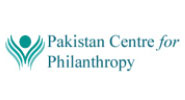Description
This is a research and systems design role within TCF’s Strategic Alignment portfolio. As Project Manager – SESA, you will lead the design and implementation of a strategic system assessment to understand TCF’s performance as a large-scale education system operating in complex and uncertain environments. You will apply systems thinking, qualitative research, and strategic inquiry to produce a diagnostic map of the organization's value creation process and its bottlenecks. The role combines intellectual depth with operational execution and will influence how TCF envisions system improvement going forward.
SYSTEM MAPPING & FRAMEWORK DESIGN
- Leverage global research on system assessment to build a contextually relevant framework for TCF.
- Develop visual and conceptual representations of how the TCF system operates, including flows of information, value, and decision-making.
RESEARCH & DATA COLLECTION
- Design and implement a research plan involving document review, policy analysis, stakeholder interviews (KIIs), and focus groups (FGDs).
- Bring sensitivity and rigor to qualitative data collection from school leaders, field teams, and internal departments.
ANALYSIS & COMMUNICATION
- Translate findings into strategic insights that inform action.
- Produce clear, visually compelling outputs for internal decision-making.
- Maintain tight alignment with organizational planning cycles.
STRATEGIC CONTRIBUTIONS
- Help surface opportunities for system-level change and contribute to the wider work of the Strategic Alignment team.
WHAT SUCCESS LOOKS LIKE
- A credible, context-aware systems diagnosis framework piloted and refined.
- Key systemic gaps identified and communicated in usable formats.
- Study findings meaningfully inform planning and design conversations, and lead to positive shifts in policy and practice
Required Skills
- Analytical Fluency: Comfort with ambiguity and ability to interpret complex, multi-source data.
- Research Excellence: Skilled in qualitative methods with a strong bias for insight and relevance.
- Contextual Intelligence: Ability to balance global frameworks with local realities.
- Design Orientation: Capacity to synthesize findings into visual outputs, frameworks, and decision tools.
- Integrity & Empathy: Trusted by informants; handles sensitive information with discretion.
- Bias for Action: Grounded in practice, constantly asking: what now, for whom, and how will we know it worked? Mission-Driven: A deep belief in equitable education, organizational learning, and improvement.
Education
Bachelor’s degree in Education, Social Sciences, or related field (Master’s preferred).
Experience
• 3–5 years of experience in educational delivery, research, assessment, or system-level roles.
• Exposure to systems thinking or systems change methodologies.

